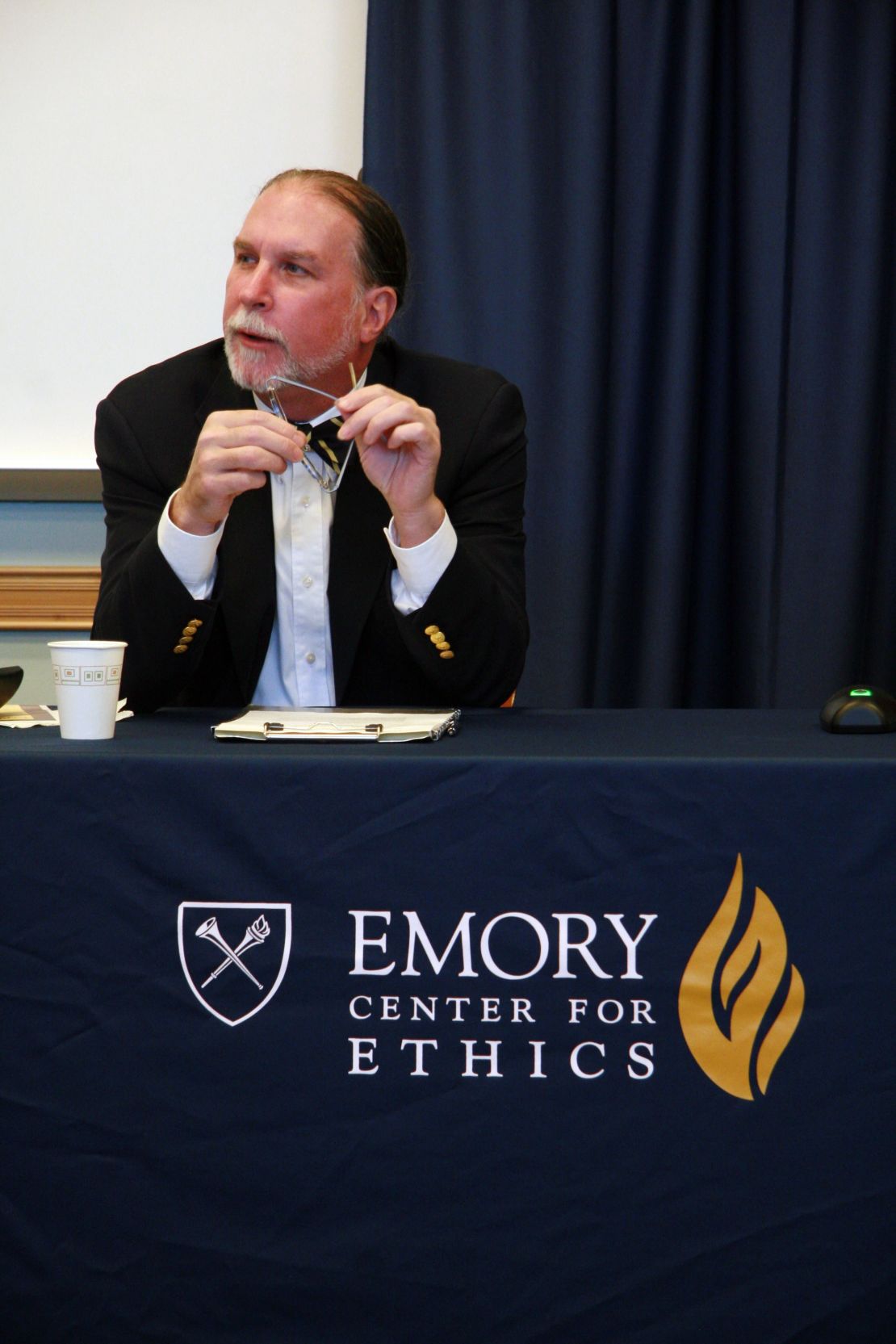Editor’s Note: Edward Queen directs the D. Abbott Turner Program in Ethics and Servant Leadership at Emory University’s Center for Ethics in Atlanta.
Story highlights
Louis Freeh releases report showing failures by Penn State administrators
Edward Queen: The report shows total lack of regard for innocent victims
He says administrators and Penn State board didn't live up to their obligations
Lesson is to focus on doing the right thing, not on covering up misdeeds, he says
The ongoing Penn State scandal reached if not its denouement Thursday at least its climax with the release of the report prepared under the auspices of former FBI Director Louis Freeh.
The report answers numerous questions about who knew about Jerry Sandusky’s abuse of children as well as how suspicions, rumors and allegations were handled. For many of us the most disturbing element of the report already had been intimated in the press, the role that coach Joe Paterno played in handling complaints against athletes internally and disregarding both Penn State’s procedures and also the law.
While charitably one could suggest that Paterno saw discipline as his role as a coach and mentor, less charitable interpretations also make sense, particularly a desire to maintain the reputation of the program and the income and prestige it brought.

Beyond motives, however, the creation of an environment where discipline took place “off the books” was destined to lead to a collapse at some point. Unfortunately when this collapse occurred its victims were children.
News: Penn State leaders disregarded victims, ‘empowered’ Sandusky
Freeh said in releasing his report that the investigation’s “most saddening and sobering finding is the total disregard for the safety and welfare of Sandusky’s child victims by the most senior leaders at Penn State.”
“The most powerful men at Penn State failed to take any steps for 14 years to protect the children who Sandusky victimized,” he said. “Messrs. Spanier, Schultz, Paterno and Curley never demonstrated, through actions or words, any concern for the safety and well-being of Sandusky’s victims until after Sandusky’s arrest.”
That remark, which many of us hoped never to read, speaks directly to the findings of the report and to the organizational and moral failures of Penn State. Even more directly, the report directly chastises the university’s board of trustees for a failure to exercise its oversight functions and its dereliction in ensuring that it was appropriately and adequately informed of risks to the university.
Not only did the university’s administration not inform to the board about the suspicions of and allegations against Sandusky, the board failed in its responsibility in establishing a system to seek such information. Most shocking, however, given its legal obligations, was Penn State’s complete dereliction in its responsibilities under express laws, including those mandating reporting and protecting those who bring violations to light.
News: Reactions to Penn State report flood social media
Freeh’s ability to identify and order the moral failings of the university in the most appropriate, empathetic and humane way is admirable. He centers his condemnations primarily on the fact that at every level –the board, the president and Paterno – no one expressed any concern for the boys whose lives were devastated by the abuse inflicted upon them by Sandusky.
Regardless of the structural, administrative and disciplinary failures at Penn State, the central moral failing was that the school cared more about its reputation, its football team, and even Sandusky than about his victims. The school grossly mis-ordered values and failed to meet its duties.
What Freeh has found is most disturbing and depressing.
A superior institution of higher education and a football program and coach admired for their express commitment to principles proved themselves to have feet of clay and appalling disregard for the safety and security of many innocent children.
News: Key players in Penn State report
Penn State’s failings should be a warning to every organization and to all of us. We protect our reputations by doing the right thing, not by hiding our failings. Indeed, even amid discovery of error and wrongdoing, reputations are enhanced by acknowledging, dealing with them immediately and directly, and working to minimize their recurrence.
If we can draw a salutary lesson from this scandal, it is that. Unfortunately, for the innocent child victims of Sandusky’s predation, the lesson has come too late. Maybe, if other organizations take these lessons to heart it will prevent future abuses and save others from becoming victims.
Follow @CNNOpinion on Twitter
Join us at Facebook/CNNOpinion
The opinions expressed in this commentary are solely those of Edward Queen.





